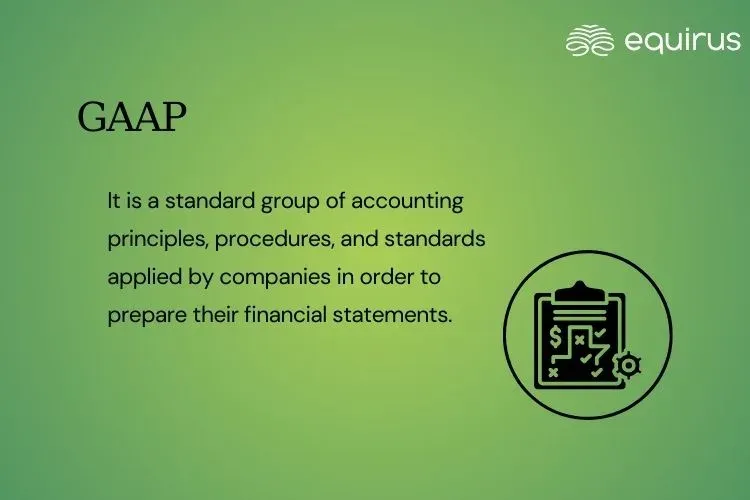GAAP

Key Highlights
-
GAAP is a standard group of accounting principles, procedures, and standards applied by companies in order to prepare their financial statements.
-
Significance of GAAP includes investor confidence, compliance and benchmarking.
What is GAAP?
GAAP, or Generally Accepted Accounting Principles, is a standard group of accounting principles, procedures, and standards applied by companies in order to prepare their financial statements. GAAP provides consistency, transparency, and comparability in financial reporting.
In the United States, GAAP is established and updated by the Financial Accounting Standards Board (FASB).
Purpose of GAAP
-
To maintain uniformity of financial statements.
-
To furnish reliable, consistent, and comparable data to investors, regulators, and stakeholders.
-
For reducing fraud and enhancing the reliability of financial reporting.
Who Uses GAAP?
-
Publicly traded companies in the United States (as required by the SEC).
-
Private enterprises that opt to use standard accounting procedures.
-
Accountants and auditors when reviewing or drafting financial statements.
Note: Other nations use various standards such as IFRS (International Financial Reporting Standards). India uses Ind AS, which is compatible with IFRS.
Major Principles of GAAP
1. Principle of Regularity
Accountants have to adhere to rules of GAAP consistently.
2. Principle of Consistency
The same accounting methods have to be employed over time unless otherwise stated.
3. Principle of Sincerity
Accountants have to give a sincere and true representation.
4. Principle of Permanence of Methods
The methods of reporting have to be consistent in order to provide comparability.
5. Principle of Non-Compensation
All sides (assets, liabilities, revenues, expenses) should be reported without offset.
6. Principle of Prudence
Financial reports should give realistic, and not excessively optimistic, estimates.
7. Principle of Continuity
Assumes the company will stay in business in the future.
8. Principle of Periodicity
Financial entries need to be allocated over suitable periods.
9. Principle of Full Disclosure
All necessary information is to be disclosed in financial statements.
10. Principle of Materiality
Only information that influences decision-making of users should be disclosed in detail.
Significance of GAAP
1. Investor Confidence: GAAP ensures reliability of financial reporting.
2. Compliance: Necessary for listing with a stock exchange and regulatory filings.
3. Benchmarking: Enables meaningful comparison across firms.
